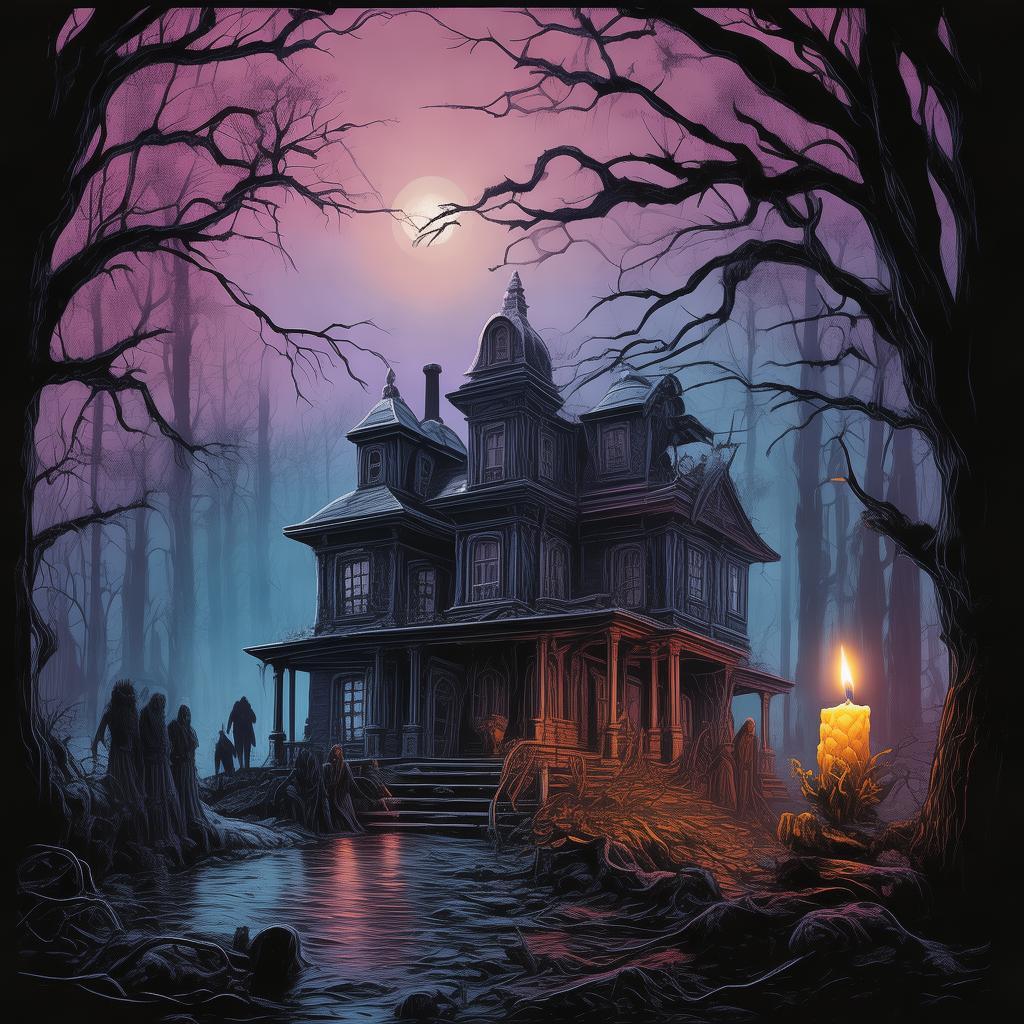The Sinister Symphony of the Abandoned Orphanage
In the heart of the dense, foggy woods that bordered the once-thriving town of Eldridge, stood an old orphanage, its once vibrant red bricks now faded and covered in vines. The town had long since moved on, leaving the orphanage to the mercy of the elements and the whispers of those who dared to venture near its gates. It was said that the place was cursed, that the spirits of the children who had once called it home still lingered, their voices a haunting symphony that only the brave—or the foolish—could hear.
The story of the orphanage began in the late 1800s, when a wealthy and generous woman, Mrs. Evelyn Whitmore, decided to build a home for the town's abandoned children. She had a soft spot for the little ones, and she poured her heart and fortune into creating a place where they could grow and be loved. But as the years passed, the town's fortunes changed, and the once-bustling orphanage fell into disrepair.
In the 1970s, the orphanage was closed down, and the children were moved to a new facility. The old building stood abandoned, a silent witness to the years of joy and sorrow that had passed through its walls. It was said that on certain nights, the wind would carry the sounds of laughter and crying, and the faintest whisper of a child could be heard, calling out for help or for a friend.
One such night, a young woman named Eliza received an unexpected letter. It was from her estranged grandmother, who had passed away without revealing much about her past. The letter spoke of a family secret, one that involved the old orphanage and a mysterious figure known only as "The Whispering Wraith." Intrigued and feeling a strange connection to her grandmother's story, Eliza decided to visit the abandoned building.

The moment she stepped through the creaking gates, she felt a chill that ran down her spine. The air was thick with the scent of decay, and the silence was oppressive. She made her way to the main building, her flashlight casting eerie shadows on the walls. The first floor was a labyrinth of dust-covered furniture and broken toys, but it was the second floor that sent a shiver through her.
The second floor was where the children's rooms had once been. Eliza's flashlight flickered as she moved from room to room, each one more unsettling than the last. In one room, she found a dusty piano, its keys covered in cobwebs. She hesitated for a moment, then reached out and pressed a key. The piano's mechanism groaned, and a faint, haunting melody filled the room.
Suddenly, the air grew colder, and Eliza felt a presence behind her. She turned to see a shadowy figure standing in the doorway. The figure was translucent, like a wraith, and it moved with an eerie grace. It turned to face her, and Eliza could see the face of a young girl, her eyes filled with sadness and longing.
"Who are you?" Eliza whispered, her voice trembling.
The girl did not respond, but her eyes seemed to pierce through Eliza's soul. She felt a strange connection to the girl, as if they were part of the same story. The girl's whisper was faint, but it reached Eliza's ears like a siren's call.
"Help me," the girl whispered. "Please, help me."
Eliza's heart raced as she realized the truth. The girl was one of the children who had lived at the orphanage, someone who had never been able to find peace. She had been forgotten, her voice lost to the ages.
Determined to help, Eliza spent the next few nights at the orphanage, searching for clues about the girl's past. She discovered old diaries, letters, and photographs that pieced together a story of love, loss, and betrayal. It turned out that the girl's mother had abandoned her at the orphanage, driven by despair and the promise of a better life elsewhere. But the girl had never found that better life, and she had died, alone and unloved.
With each new discovery, Eliza felt a growing sense of responsibility. She knew that she had to do something to honor the girl's memory and to bring her some measure of peace. She began to clean the orphanage, restoring it to its former glory, and she started a foundation to help abandoned children in the town.
One night, as Eliza was working late in the orphanage, she heard the faint sound of a piano playing. She turned to see the same shadowy figure of the girl, but this time, she was whole, her eyes filled with gratitude.
"Thank you," the girl whispered. "You've given me a voice again."
Eliza smiled, tears in her eyes. She knew that she had done the right thing, not just for the girl, but for all the children who had ever called the orphanage home.
And so, the old orphanage became a place of healing and hope, a testament to the power of love and the enduring spirit of those who had once called it home. The whispers of the children were no longer a haunting, but a symphony of hope, played by the hands of those who had learned to listen.
✨ Original Statement ✨
All articles published on this website (including but not limited to text, images, videos, and other content) are original or authorized for reposting and are protected by relevant laws. Without the explicit written permission of this website, no individual or organization may copy, modify, repost, or use the content for commercial purposes.
If you need to quote or cooperate, please contact this site for authorization. We reserve the right to pursue legal responsibility for any unauthorized use.
Hereby declared.









